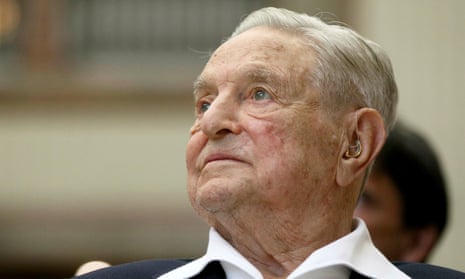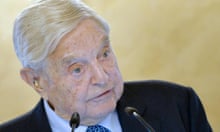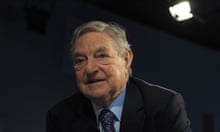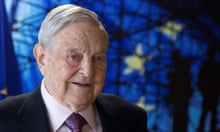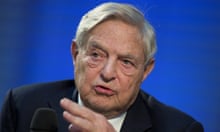Philanthropist. Intellectual. Trenchant opponent of totalitarianism. George Soros is all of these things. At 92, he has not lost his power to make headlines, as shown by his decision to hand control of his multibillion-dollar Open Society Foundations to his son Alex, going back on a vow that it would not go to one of his children.
It has been a long time since Soros was an active investor, and he has been focused on how to spend the fortune he amassed on his main areas of interest – building democracies and supporting human rights.
Yet he will be forever known as the financier who broke the Bank of England by leading the speculative attack on the pound more than 30 years ago.
And with good reason. Black Wednesday, as it became known, was a seminal moment. It was the classic demonstration of the power of financial markets. What’s more, it led to a rethink of the UK’s entire economic strategy and the establishment of the inflation-targeting regime still in place today.
Soros has plenty of enemies. In recent years, those who turn up to his annual dinner at the World Economic Forum in Davos have heard him warn that China’s Xi Jinping will use artificial intelligence to cement a one-party state, and that Vladimir Putin’s invasion of Ukraine may be the start of a third world war.
In the US, Soros is loathed by many Republicans. In part, that is because he has never had any time for Donald Trump, but it is also because as a billionaire, Democrat-backing Jewish supporter of globalisation, he has become fodder for a host of increasingly wild antisemitic conspiracy theories.
In truth, Soros is far more complex than this bogeyman image of a plutocratic financier would suggest. As a student at the London School of Economics, he was influenced by the philosopher Karl Popper, who said it was impossible to establish anything with absolute certainty and that ideologies that claimed to have found the secret to universal truth were making a false claim. Popper said that, because they were flawed, these ideologies – on the left and right alike – could only be imposed by force and would lead to tyrannical regimes.
Popper’s insight helped Soros develop a critique of financial markets known as reflexivity: that far from being perfectly rational, investors based their decisions on a perception of reality. These decisions then altered the reality through a feedback loop. Soros says his belief in reflexivity meant he was able to successfully predict the 2008 global financial crisis.
Paradoxically, though, the financial bonanza for which he is best known was when the markets behaved with clear-headed rationality. Like other currency traders, Soros thought there was an obvious tension between the determination of John Major’s government to defend the pound’s value within the European Exchange Rate Mechanism (ERM) and the dire state of the UK economy in late 1992.
Britain had joined the ERM less than two years earlier and was committed to keeping the pound within a set band against the German mark. The orthodox way of supporting a currency is to raise interest rates, but they were already at 10% at a time when unemployment stood at more than 3 million.
The gamble Soros and his fellow speculators took was that the pound would eventually be devalued because there was a limit to how much pain the government was prepared to inflict on its own people. The gamble proved correct. After announcing that interest rates would be raised to 15% (a decision never acted upon), the government caved in and announced that Britain’s membership of the ERM would be suspended. Soros cleaned up.
Black Wednesday was a bruising and humbling episode but turned out to be a blessing in disguise for the economy. The pound fell sharply, which was good for exports. Interest rates were cut and a long 16-year boom followed. Yet despite Soros being a strong supporter of the EU, his activities arguably lit the long fuse of Euroscepticism that eventually led to the Brexit vote of 2016.
